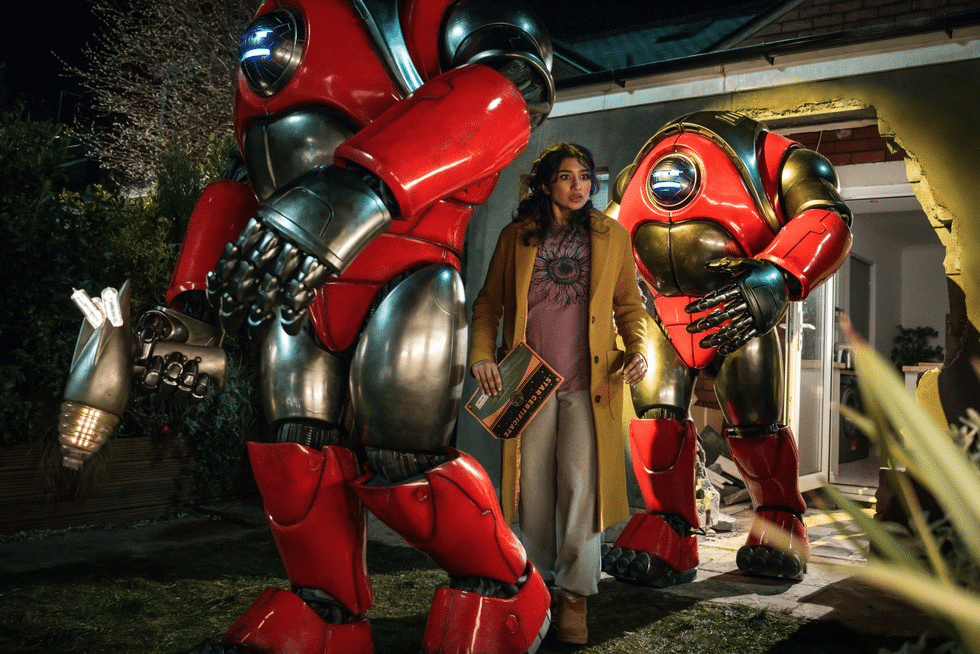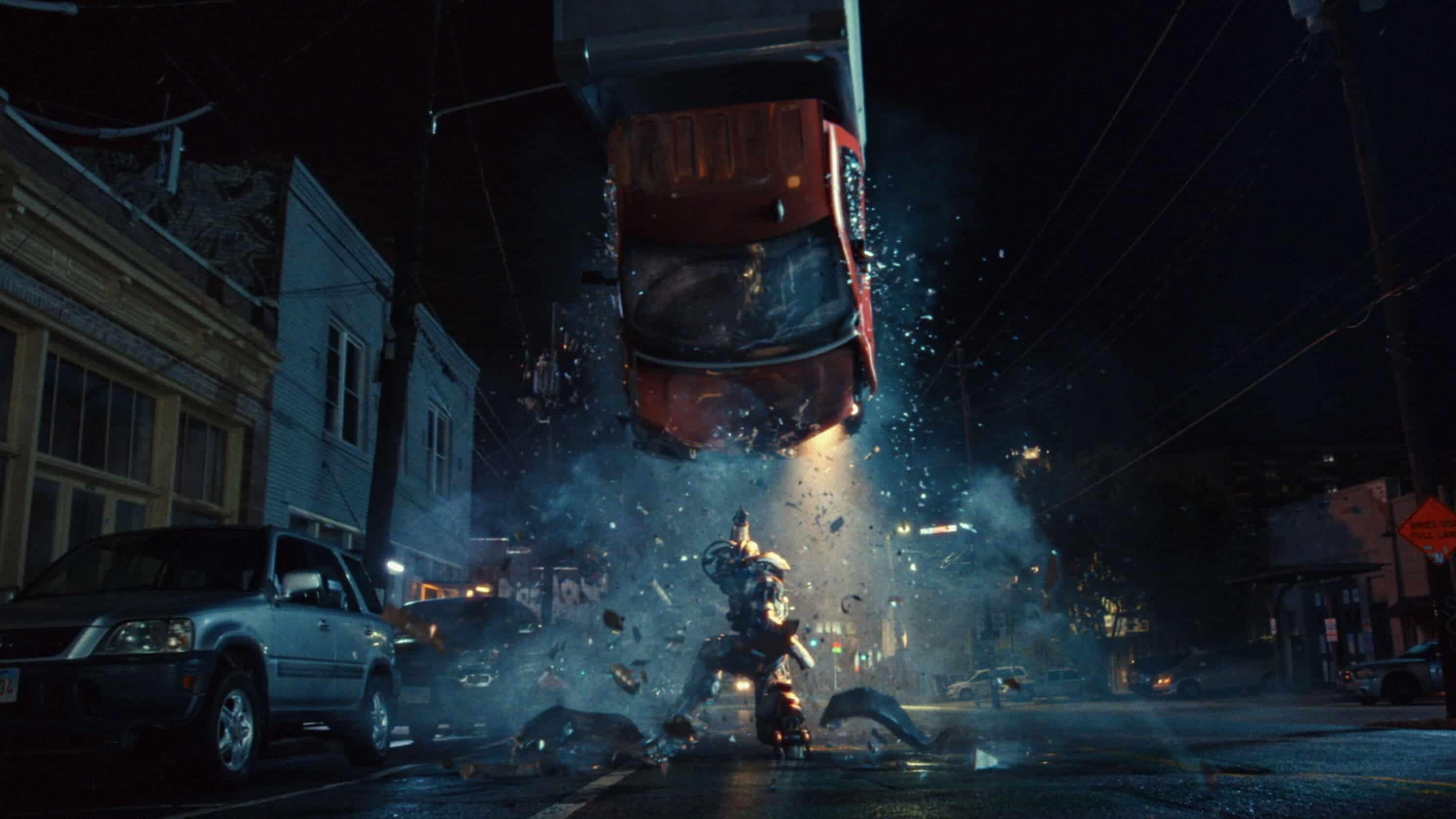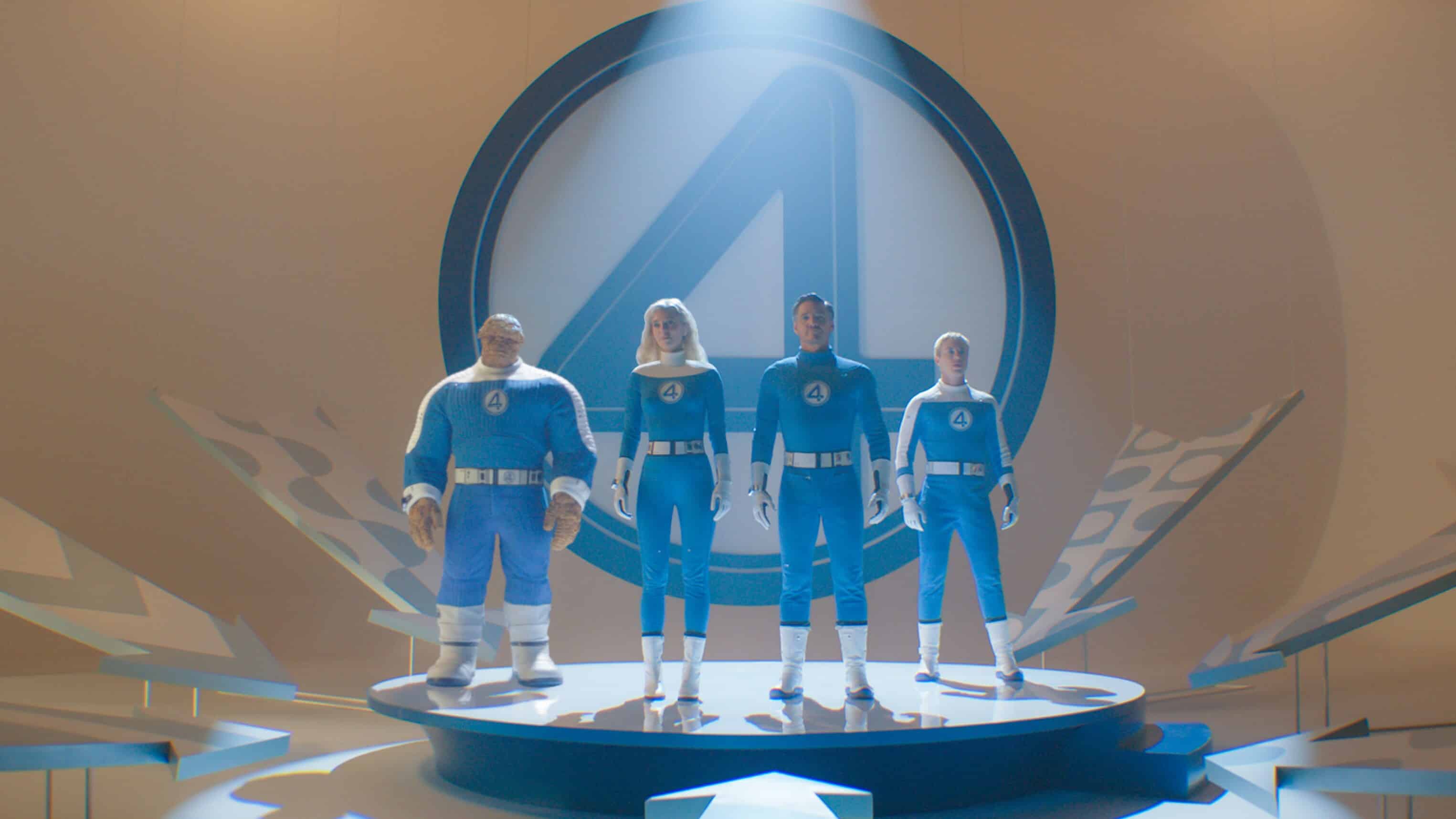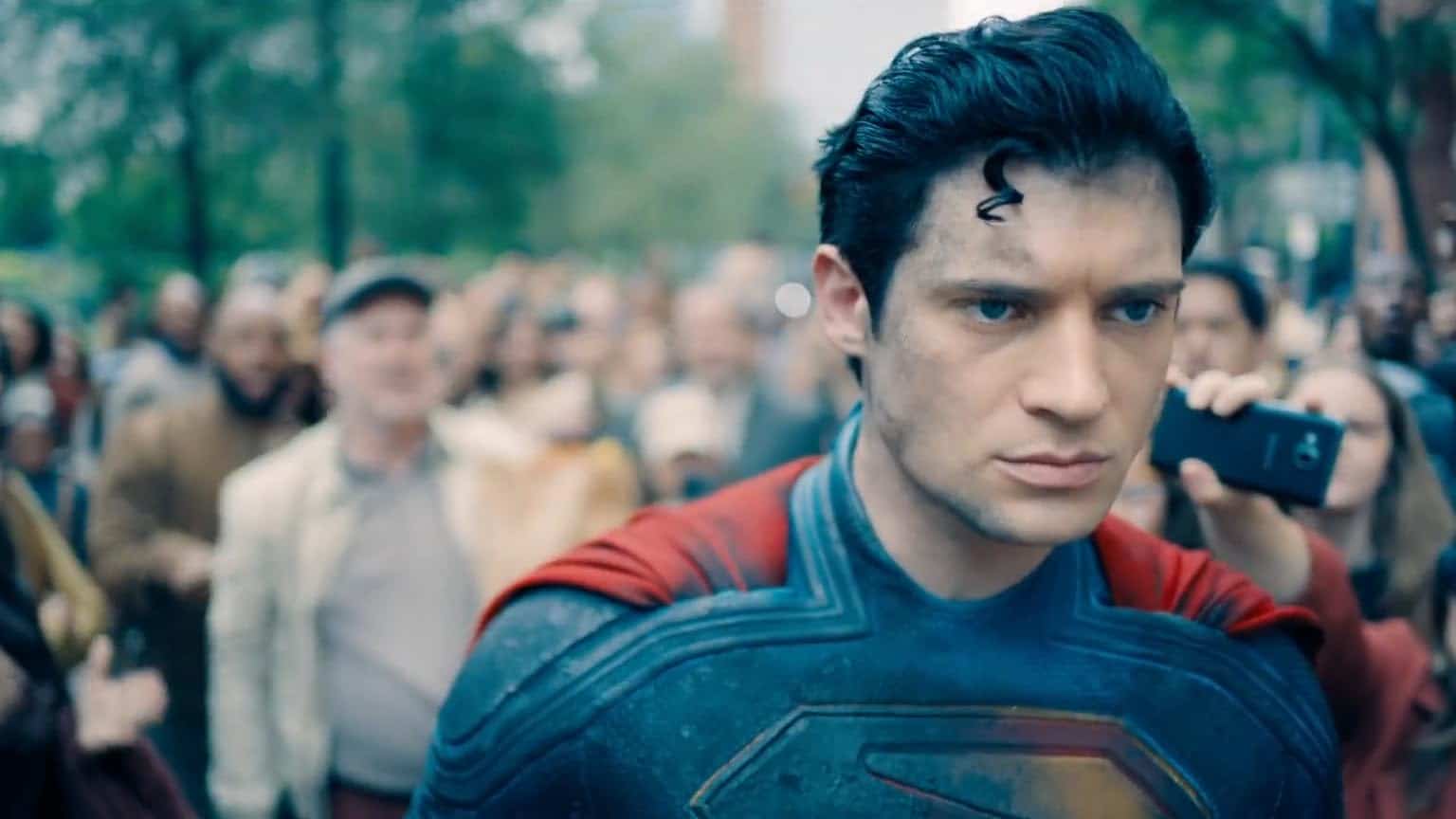This review will include spoilers. Please be advised!
I’m not the first person to say that Russell T Davies really has nothing to prove anymore with Doctor Who. Like the Doctor himself, RTD has made a kind of habit of saving the world he loves so much from destruction – though in TV land, that means cancellation, not Sutekh or the Sontarans. So what laurels could you even give him – unless it’s that UNIT show he clearly wants? It’s all, to my mind, sort of an academic matter, because even if Disney does pull the plug on this new iteration of the show (there’s some talk they may, apparently – I do, do hope they don’t) RTD saved Doctor Who not once but, really, twice – and if this second time around is going away, I still don’t think anyone could say it was his fault, just that he should have been more careful about joining up with Disney.
But let’s stay away from rumors and worrying would-be futures – let’s stick to what we know for certain about RTD. After its cancellation in 1989, he was the man to lead Doctor Who back to not just existence but to wide, mainstream, international popularity. Speaking for myself, Matt Smith’s imposing yet at times still oddly bratty Doctor may have been my first (Steven Moffatt, therefore, was my first showrunner), but it was the Ninth and 10th Doctors, whose scrappy, 2000 AD-meets-Buffy-style (then series, now season) arcs I loved so much, that made Doctor Who appointment viewing for me. Every week, I was eager to see the show hit anew the heights I’d seen Davies as showrunner take it to in masterpiece after masterpiece: “The Sound of Drums,” “Turn Left” or “Dalek.”
It usually didn’t, but it didn’t matter. It’s the same principle that keeps so many of us reading comics or that kept our parents watching soaps: These are my characters. These are my stories – and some of those stories were great. The act of remembering was just as good as watching them – and besides, Doctor Who had a history as long as any franchise could boast of.
So that memory – and that archive – kept me watching well past the point when Moffatt’s convolutions became a bit too much to take. That glow started to fade for me during the Chibnall era, to be honest, like it did for a lot of people. The performances were earnest enough, but the writing had grown flat, pro forma. There was no risk, nothing new – five would get you 10 that the Doctor would show up in present day London, humble an arrogant villain, somberly mouth tepid moralisms and fly off to meet a historical figure the show was unprepared to really dig deep into. It was as though once the stories had grown so confused and contorted under Moffatt, they had become exhausted, limp.
It felt like the only thing Chris Chibnall really had to say about Doctor Who was just that he loved it, while Davies and Moffatt had been always able to articulate why. Stories like “Ker-Blam!” (where the Doctor rushes to the defense of Space Amazon against an incipient union) and “Rosa” have rightfully gone in for criticism — they seem to think Rosa Parks’ greatest achievement is getting an asteroid named for her (shades of Missbelindachandra, no)? But the real exempla of what Chibnall’s Who was like for me was “Orphan 55,” a seemingly unfinished piece of what I suppose is environmental commentary — this blasted heath of a planet, we learn, is earth — and we, in some sense, are responsible. Environmentalism is important, the Doctor reminds us, and we are responsible.
If you turn off the episode, the question is: Uh, for what? What did we do? Why did we do it? The disease is correctly identified as Very Bad — because of course it is indeed Very Bad — but there is no attempt at epidemiology. There is no discussion of why this has happened or what the viewer can do about the forces that have led to Earth’s becoming the 55th of the orphan worlds — only the pity that it has.
Which brings me, then, to “The Robot Revolution.” It is by no stretch of the imagination a bad episode, as “Orphan 55” is. But it is sort of Chibnall-like – it is a standard length of Russell T Davies Doctor Who, which means it is of a base high level of frenetic quality, but it is not necessarily something I will be thinking about for the rest of my life, like “Human Nature.”
Everything works pretty much the way you’d expect it to, by now. First we have a little companion meetcute with the unflappable, independent Belinda Chandra (Varada Sethu). We have some baddies, a time paradox, a bit of Daviesian satire (the wonderful as always El Sandifer compared it, quite correctly, to Andrew Cartmel’s caustic scripts in things like Paradise Towers or The Happiness Patrol, and of course she’s right – but by now it’s just as much a Davies thing, isn’t it?). We have a surprising and comical twist or two, a deus ex machina ending, a bit of skeeviness on the Doctor’s part, and a cliffhanger. In a sense, it’s sort of a Doctor Who episode assembled out of Doctor Who episodes – Belinda is sort of an exquisite corpse of Donna Noble and my one true beloved Martha Jones with a bit of Clara Oswald impossible girlishness thrown in there. But she’s likable, even if the plot doesn’t quite sell her self-sacrifice, except in the context of a Doctor Who episode. Belinda chooses to sacrifice herself because that’s what a good though cynical person does in a Doctor Who episode. That’s what Martha Jones would do, isn’t it? The thing is – all that I’ve just said is true. But also, I love Martha Jones. I love Doctor Who – and I love RTD’s Doctor Who.
If I were feeling critical, I would say that the main ideological thrust of the episode — AI plus toxic men (in a twist I genuinely enjoyed, they are blurred together, with a rather nasty fellow called Al masquerading as a delightfully skeletal AI) — is sort of more in the “Orphan 55” model than the “Dalek,” where we see how hatred scars warriors on either side, where we see how technophilia discards human life. The problem here – in an episode gesturing sort of at a similar idea, because God almighty but Henry van Statten is an extremely Elon Musky, ChatGPTish guy – is that, frankly, we never really get a sense of what life on this planet is, and so it never really matters. Dearly departed Sasha 55 is a Doctor Who character, not a person we could care about, so when she dies to a laser gun like so many bright sparks have died to laser guns, we kind of don’t care. So many people die in Doctor Who that the weight is not there – and then we just move on. It’s hard to fault the Doctor for it, to call it callous, when the script does it, too.
If there’s a problem with this era of Davies, it’s show not tell. We are told that Missbellachandra was a utopian society where man and shiny retrofuturistic emojibots lived together. As a Doctor Who viewer I can accept this — I have and will accept a lot worse before breakfast. We are then told that a nasty proto-incel from 2008 London has corrupted this society because. This we are at first shown not told — in a rather clever piece de theatre, we see that Al, like every user of AI (or so it seems) is a profoundly uncreative fellow and is only interested in recreating things he already has, only making them a lot worse. Then we are sort of told that this is the case – as Belinda wryly puts it, this is the AI planet, and, as such, it is the nasty, creatively void “planet of the incels.” But is it really? If it is, why? It bumps up, I suppose, against that “Orphan 55” sort of thing: We’re just sort of told that something is a metaphor, without ever being shown it. The script is agile enough that it doesn’t matter, really, that these are kind of cutouts, that this is a formula – but it doesn’t leave you in tears or in shock. The thing is that Russell T Davies has and does do better than this – just look at “Dot and Bubble,” which is certainly the best episode of the last few years and is arguably one of the best episodes of the revival period. This is no “Dot and Bubble” – but then, it’s no “Space Babies.” So what the hell, right?
You could call this episode, a piece of Doctor Who made of Doctor Who, written by AI (ironically enough), but I don’t think that’s right. The first series of this Disneyfied Who had this kind of frenetic energy, the feeling of someone rushing back into the swing of things with a teeming brace of ideas – a panoply of chaos gods and terrifying, swirling warnings about neo-neo-fascism. But now it seems like RTD has gotten, well, comfortable? He is, after all, the man who has everything, at least for now. So, really, what do you give to the man who has everything, other than more season orders? All I ask, I guess, is that RTD, if he gets them, do more with them! We all know he can, after all – we just need him to make the turn left, so to speak. And if he doesn’t – or, more to the point, if he doesn’t get a season 3 order …
But then again, judging by the end-of-episode twist, we have a lot more turns to come.
Come back next time as Margot is joined by Armaan Babu to discuss “Lux”!

Margot Waldman
Margot Waldman is a Mega City Two-based scholar, researcher and writer. Her great loves are old comics, Shakespearean theater and radical social justice – in no particular order. One day, she hopes to visit the 30th century.





